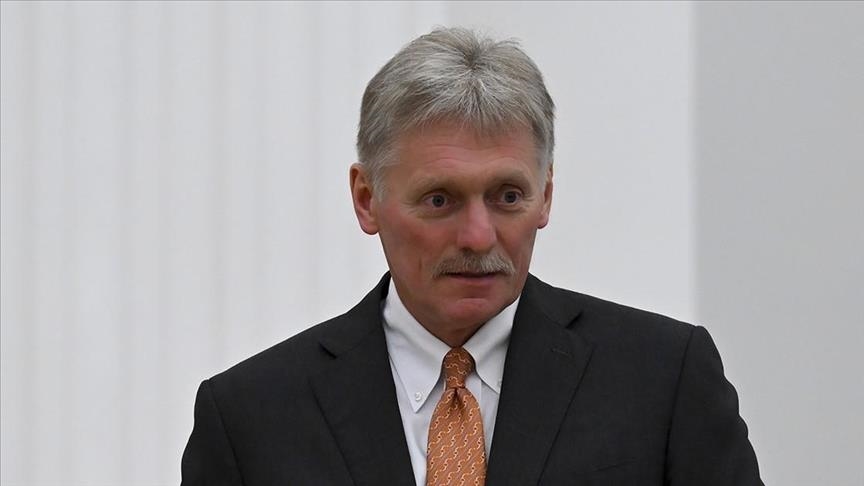Russia says it has ‘nothing to report’ on Assad extradition after Putin-Sharaa talks
Kremlin spokesman also denies any discussions on return visit by Russian president to Damascus

ISTANBUL
Russia on Thursday declined to comment on whether the issue of extraditing Bashar al-Assad was raised during talks between President Vladimir Putin and his Syrian counterpart Ahmad al-Sharaa a day earlier in Moscow.
Sharaa told Putin that Syria is willing to restore “historic and strategic” relations with Russia, and that it will respect all past agreements between Moscow and Damascus. Sharaa's state visit was his first to the country that has hosted Assad since his ouster in December 2024.
Putin said ties between Moscow and Damascus have always been “exclusively friendly,” adding that Syria's parliamentary election last month was a “great success” and will lead to the “consolidation of society.”
“We have nothing to report on Assad here, we have nothing to report in this context,” Kremlin spokesman Dmitry Peskov told reporters in a briefing, in response to a question on whether the issue of his extradition to Syria was discussed between the two presidents.
Peskov also denied that any discussions took place on a return visit by Putin to Syria, but said such invitations could be extended through diplomatic channels.
He added that the fate of Russia’s military bases — a naval base in Tartus and an air base at Hmeimim, both of which are located on Syria's Mediterranean coast — was on the agenda of the talks, but gave no further details.
Russian oil exports
The spokesman also touched on Wednesday’s claim by US President Donald Trump that Indian Prime Minister Narendra Modi had “agreed” in conversation to halt purchases of Russian crude oil, saying Moscow is relying on official statements regarding the issue.
"We're relying on official statements from the Indian External Affairs Ministry in Delhi, and there was also a statement from Beijing. These statements are publicly available, and that's what we're relying on," Peskov said.
He told journalists that while Trump has stated his intention to persuade countries not to purchase Russian oil, the positions of these countries must also be taken into account.
"This is a question of benefit for their people. Countries want to buy a high-quality product for less money. Russia is in a position to offer this," he added.
Earlier Thursday, India’s External Affairs Ministry spokesman Randhir Jaiswal did not directly address Trump's claims, but put out a statement saying: "India is a significant importer of oil and gas. It has been our consistent priority to safeguard the interests of the Indian consumer in a volatile energy scenario. Our import policies are guided entirely by this objective."
Ensuring stable energy prices and secured supplies have been the "twin goals" of our energy policy, he said, adding that the current US administration has shown interest in deepening energy cooperation with India and discussions are ongoing.
Meanwhile, Chinese Foreign Ministry spokesman Lin Jian called the US demand to halt Russian oil imports as “unilateral bullying and economic coercion,” arguing that such conditions “threaten security stability of global supply chain.”
Both India and China are the two top buyers of Russian crude exports.
Gaza peace plan
Regarding the situation in the Gaza Strip, Peskov said Russia is not a party to Trump's Gaza ceasefire plan, meaning it is "unlikely" Russia will invest in reconstruction efforts.
"Having traditional historical relations with the Palestinians, we will of course remain ready to provide all necessary assistance to the people of Palestine," Peskov added.
US President Donald Trump and Egyptian President Abdel Fattah al-Sisi hosted a summit in Sharm el-Sheikh, bringing together world powers and regional leaders to endorse the US-brokered Gaza ceasefire agreement reached earlier this month.
In the plan's first phase, Hamas released 20 Israeli captives while Israel released nearly 2,000 Palestinian prisoners. Israeli troops have begun withdrawing from densely populated areas, and humanitarian aid has started arriving in the Gaza Strip.
Later phases include demilitarizing Hamas, establishing a temporary technocratic governing mechanism, and deploying an International Stabilization Force (ISF) to ensure border security.
Anadolu Agency website contains only a portion of the news stories offered to subscribers in the AA News Broadcasting System (HAS), and in summarized form. Please contact us for subscription options.







